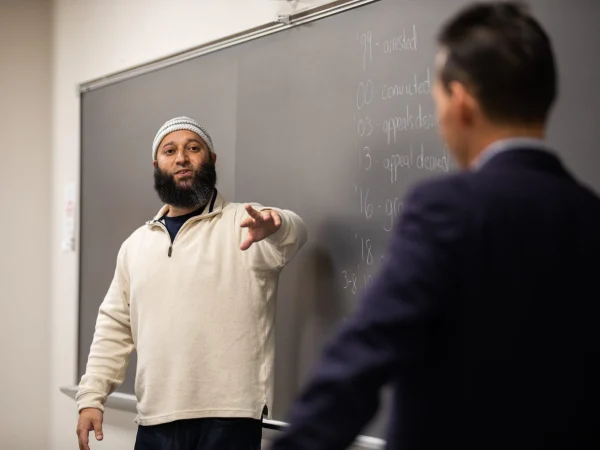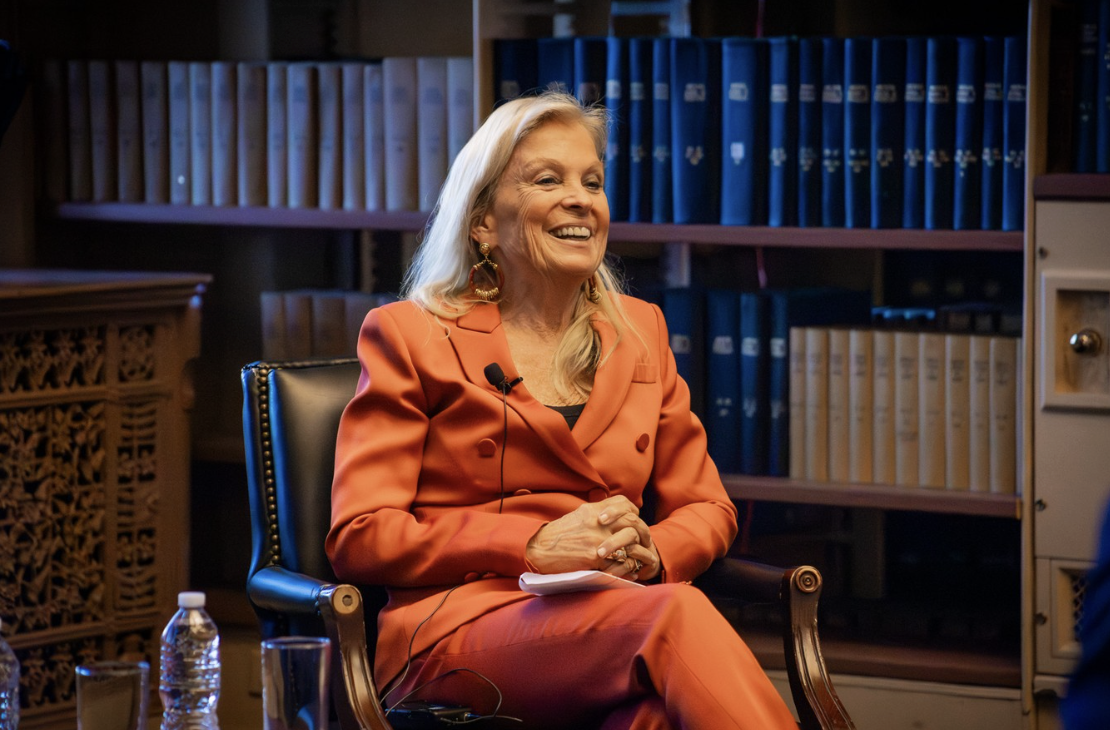The Supreme Court of Maryland reinstated the conviction of Adnan Syed, who currently works as an associate at Georgetown University’s Prisons and Justice Initiative (PJI), on procedural grounds in an opinion released Aug. 30.
Syed, whose case gained fame after it was featured in the podcast “Serial,” was initially convicted in 2000 for the 1999 murder of his high school ex-girlfriend Hae Min Lee, serving 23 years in prison before being released in 2022 after a judge vacated his conviction at a hearing and Baltimore, Md., prosecutors dropped the charges against him. However, in 2023, an appeals court ruled that Lee’s brother should have been notified and allowed to attend the wrongful conviction hearing in person; in the Aug. 30 decision, the Maryland Supreme Court voted 4-3 to reinstate the charges against Syed.
Syed has worked at PJI, a Georgetown organization that studies and aims to address the issue of mass incarceration, including by offering education to incarcerated prisoners, since December 2022. He will remain free while the Baltimore City State’s Attorney’s Office determines whether to again move to overturn the conviction and drop the charges.

Marc Howard, a Georgetown professor of government who serves as the director of PJI, said he supports Syed, who has consistently maintained his innocence.
“I remain fully supportive of my friend and colleague Adnan Syed, who was wrongfully convicted of a crime he did not commit,” Howard wrote to The Hoya.
Erica Suter (LAW ’03), Syed’s attorney and a public defender, highlighted that Syed’s conviction was reinstated on procedural grounds only. The judge’s initial decision to overturn Syed’s conviction, known in legal terminology as a “vacatur,” hinged on new DNA evidence and a Brady violation, which occurs when a prosecutor fails to disclose evidence beneficial to the defendant to the defense.
“Adnan is innocent,” Suter wrote to The Hoya. “This appeal was about the process for the vacatur, it did not challenge the substance of the vacatur — that there was a Brady violation, that the other evidence supporting his conviction has been debunked and that subsequent DNA testing excluded Adnan.”
In his opinion, Maryland Supreme Court Justice Jonathan Biran wrote that the previous hearing to overturn Syed’s conviction did not give Lee’s family enough time to testify in person.
“In an effort to remedy what they perceived to be an injustice to Mr. Syed, the prosecutor and the circuit court worked an injustice against Mr. Lee by failing to treat him with dignity, respect and sensitivity and, in particular, by violating Mr. Lee’s rights as a crime victim’s representative to reasonable notice of the Vacatur Hearing, the right to attend the hearing in person and the right to be heard on the merits of the Vacatur Motion,” Biran wrote in the opinion.
Martin Tankleff, an attorney and exoneree who was wrongfully convicted of murder as a teenager and now serves as the Peter P. Mullen Distinguished Visiting Professor of Law at Georgetown University Law Center, said the procedural details of Syed’s reinstated conviction are unusual.
“In all of my experiences with wrongful convictions, I have never heard of a case being reinstated because a victim (or their family) wasn’t permitted to speak in person (and note that the victim’s family in this case did speak by Zoom),” Tankleff wrote to The Hoya. “What the victims’ family has to say should have absolutely zero impact on Adnan’s case because of the serious constitutional errors and exculpatory DNA evidence.”
“Furthermore, while victims’ rights are always important, what about the person who is wrongly convicted? They are a victim as well – Adnan and his family are victims in this persecution,” Tankleff added.
Syed’s future now rests with Baltimore City State’s Attorney Ivan Bates, whose office could either hold another hearing to vacate Syed’s conviction or withdraw the motion to vacate and maintain Syed’s conviction.
James E. Bentley II, chief of communications for the Baltimore City State’s Attorney’s Office, said the office is reviewing the decision as it waits for the Maryland Supreme Court to formally send the mandate of the case back to a lower court judge, after which it will be able to hold another hearing or leave the conviction in place.
“Until the mandate is issued, jurisdiction remains with the Supreme Court,” Bentley wrote to The Hoya. “Once the mandate is issued, jurisdiction is re-invested with the Circuit Court. During this time, our office will continue to thoroughly review the matter.”
Howard said Syed plays a key role in PJI, helping achieve its mission to overturn wrongful convictions and provide education and employment training to incarcerated individuals.
“Since joining the Prisons and Justice Initiative team in December 2022, Adnan has become an integral and valued member of our team,” Howard wrote. “His contributions have profoundly impacted our mission to advance justice and support individuals affected by the criminal legal system.”








